Photographer Allaire Bartel Captures The Male Entitlement Women Face Every Day

By:
It can be difficult to pin down exactly what we mean when we talk about male entitlement. Photographer Allaire Bartel created a series of photographs that clarify the nebulous term, and translate the harassment women face in their day-to-day lives into startling, visual language.
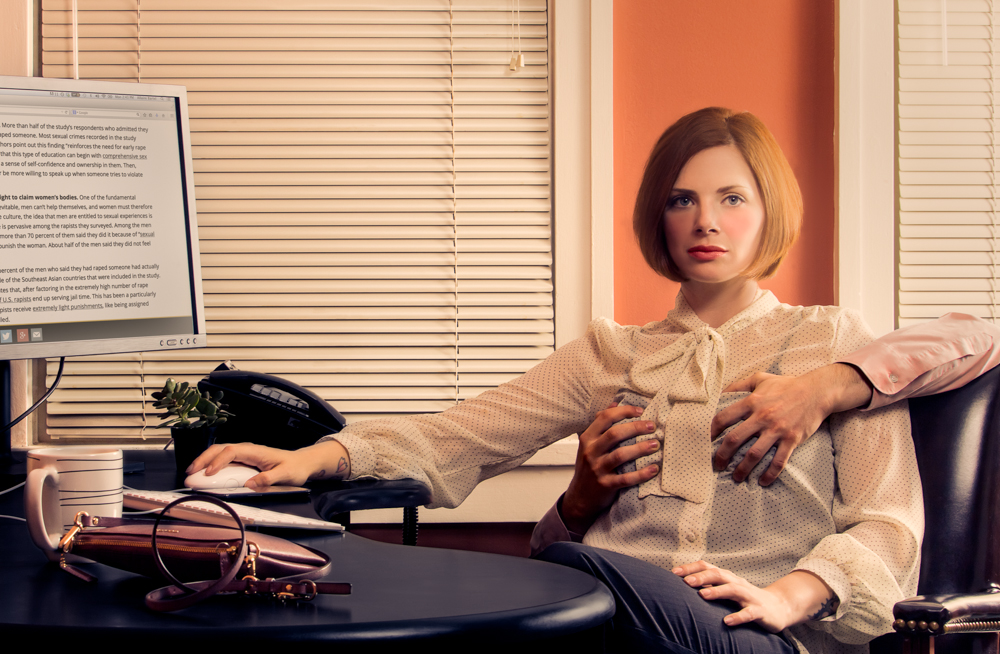 Allaire Bartel
Allaire Bartel
Women don't just experience oppression in moments of sexual and physical violence, but also in subtler moments that we don't always address or acknowledge, the artist says.
"In the context of my project, [male entitlement] came to mean a situation in which the man felt in-control and safe while his actions made the woman feel uncomfortable or unsafe, and in order to keep the peace, protect her job, etc. the woman did not speak up about her discomfort," Bartel told ATTN: over email. "I think the repeated exercising of the privilege that men hold in those situations without any restriction or backlash eventually becomes a learned sense of entitlement."
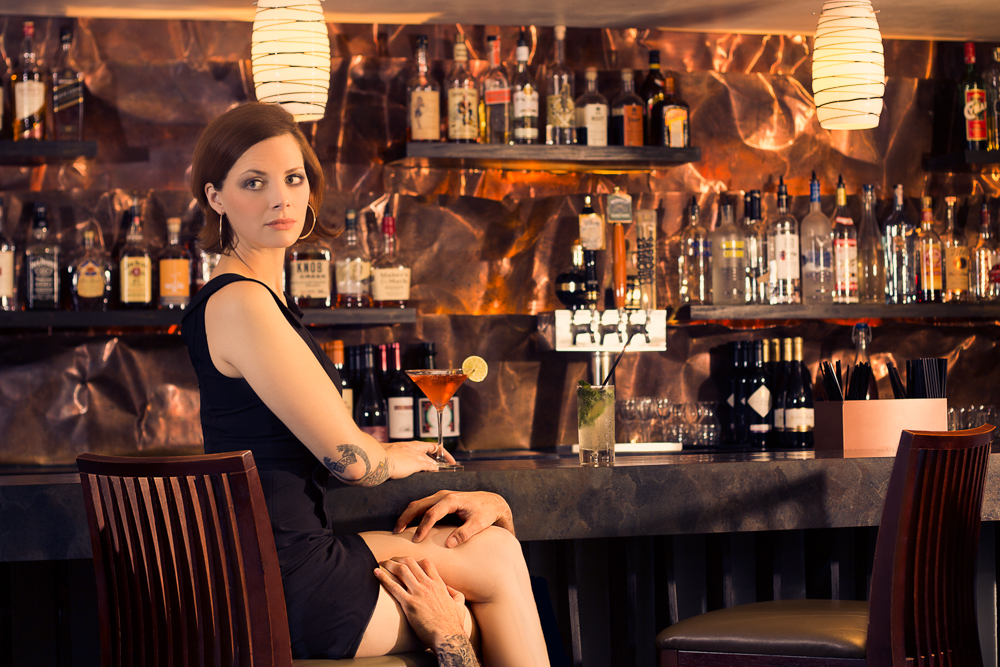 Allaire Bartel
Allaire Bartel
She used male hands to personify both the physical and psychological impacts of navigating "a man's world" and capture how male entitlement permeates female psychological life. "The concept of male entitlement is represented by male arms and hands performing a variety of actions that are overwhelming intrusive on her body and her life," she wrote.
Her arresting, hyperreal images show women groped by male hands in the middle of ordinary situations: at work, walking down the street, and making breakfast.
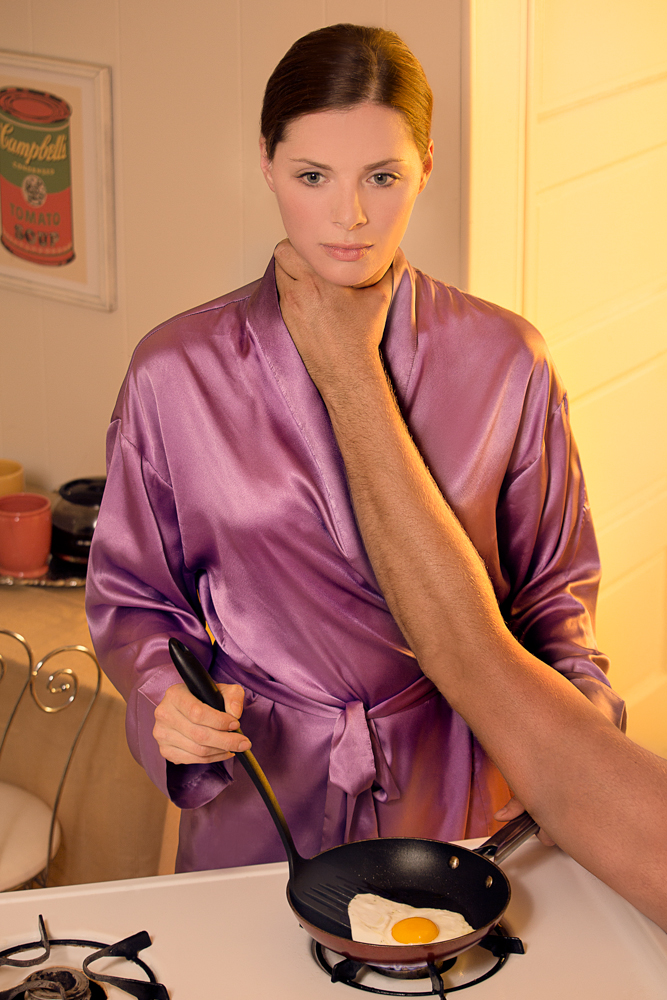 Allaire Bartel
Allaire Bartel
"There were several factors that went into the final selection of the settings," Bartel explained over email. "All of them were based on experiences of sexism that I or Erin (my close friend and the model) or one of our friends had encountered. However, since this included a wide variety of circumstances, we made the final decisions based on what made sense within the body of work- in some ways the woman that Erin portrayed in the photographs took on a character and lifestyle of her own."
We don't always respond to acts of oppression.
Bartel portrayed women with neutral facial expressions to emphasize the way society normalizes and reinforces male entitlement.
The photographer also looked at online conversations about male privilege, as well as her own experiences, and those of her female friends. She explained more about her inspiration for the project on YouTube.
"There is this culture, this view that society has, and this general feeling of oppression that exists and that all women feel, and that concept was really hard to interpret visually," Bartel recounted.
The day she came up with the visual concept, she experienced two separate harassment incidents. Bartel said she didn't respond to either, and began to consider why that was. "It's hard to put up a fight, you have to pick your battles everyday," she explained.
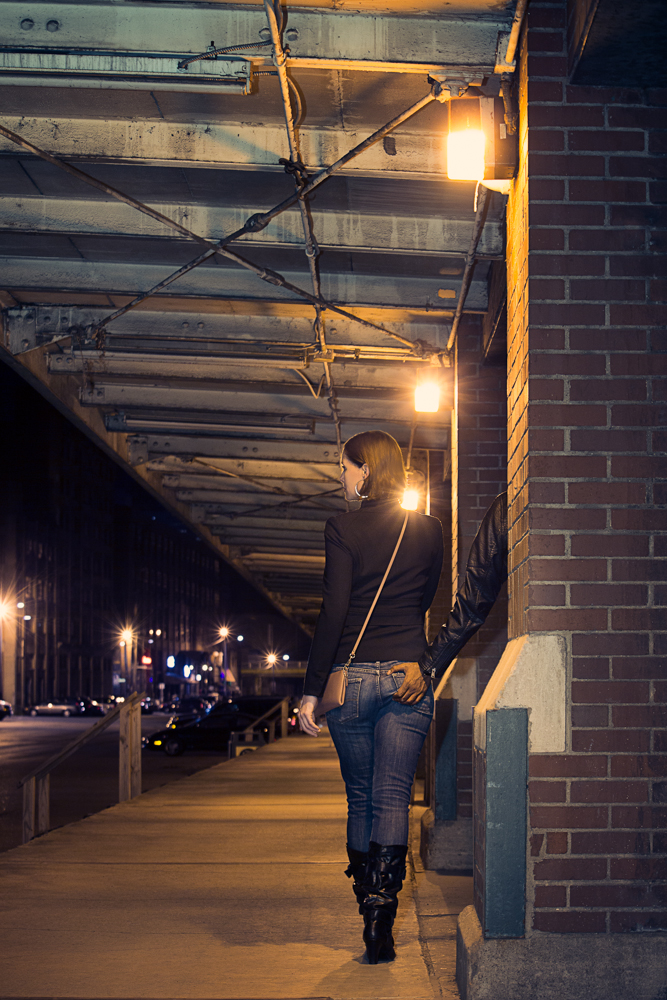 Allaire Bartel
Allaire Bartel
Bartel went through several ideas, and toyed with the idea of "women as robots," and images of "Stepford Wives" to portray women's practically automatic, nonchalant responses to oppression, before creating the photo series.
"In each situation [the model] maintains a blank expression, a visual choice that demonstrates how conditioned we, as women, have become to accept this atmosphere as excusable and even normal," she wrote. "A slightly hyper-real post processing style was implemented to emphasize that these actions, whether large or small, all perpetuate the idea that “woman” does not mean the same thing as “human.”
Bartel's photo series went viral, but not everyone was a fan of her work.
Bartel's photographs were picked up by numerous media outlets including Buzzfeed, GOOD, Al Jazeera, and the UK Telegraph. But she also experienced a good deal of backlash, she explained on her website. Some people launched attacks at her appearance, "an expression of sexism in itself," she told ATTN: over email.
You can read some of these comments on her YouTube video.
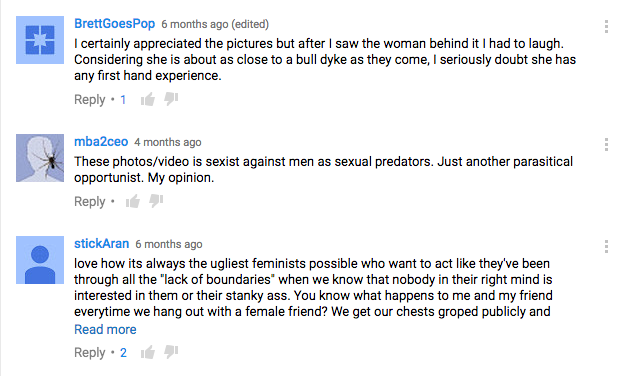 Youtube/Allaire Bartel - youtube.com
Youtube/Allaire Bartel - youtube.com
"There is a negative side to “viral” as well," Bartel wrote. "Your quotes can be cherry-picked and misinformation is spread, and you are left wide open to thousands of uninformed opinions."
Some critics also took issue with how race was depicted in the series, particularly in the two images showing a dark-skinned person harassing a light-skinned person. On her website, Bartel explained that the series was meant to be viewed in completion, and that "if you look at all of the photos the race of the “hands” changes."
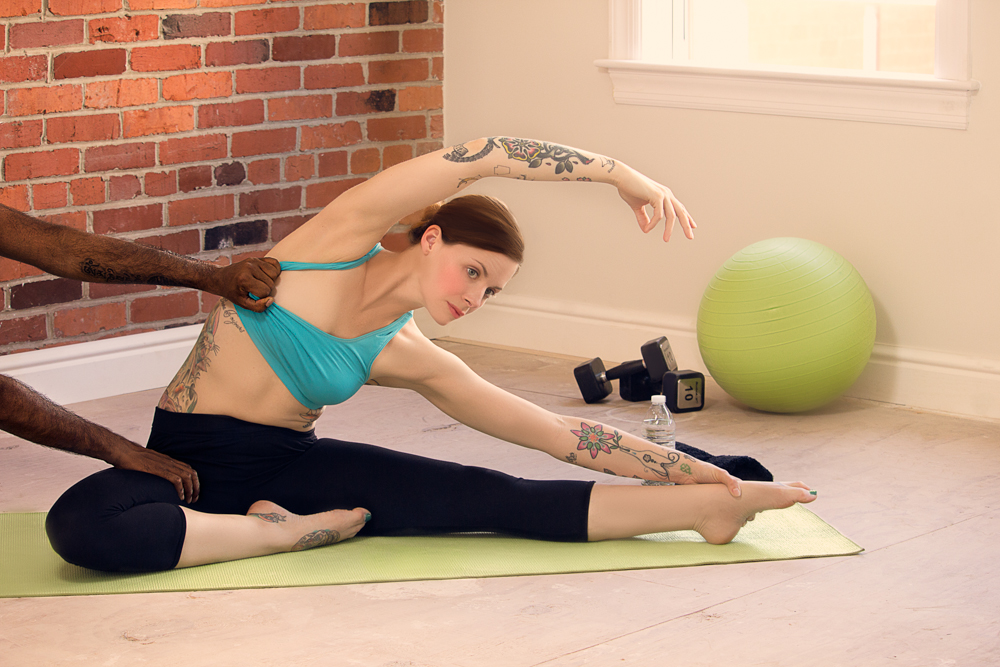 Allaire Bartel
Allaire Bartel
"Anyway, if all of the photos were of darker men harassing a lighter woman, that would present a very troubling message, but that isn’t the case," she added.
Additionally, many viewers assumed that the model in the photos was white, when she was actually biracial. Bartel explained:
The photo series paints the picture of a “day in the life” of one woman, and since only one woman is shown in the series, her skin tone cannot change from photo to photo. Additionally, while Erin is pale, she is mixed race (African-American/Caucasian) and in her words upon reading some of these comments: “Wow, sorry I don’t look black enough for you” and “I can’t help how pale I came out compared to my brother and sister.” Sure, she “reads” white, but please remember that there are real people with real histories behind this project.
She also observed that there was some confusion about her intentions when she set out to begin the project.
"I think the thing that is currently not well known about Boundaries is that this was a personal, not professional project put together by myself and a handful of dedicated friends in our limited spare time," she said.
"Unfortunately, there were others who felt the project was not inclusive or representative enough and I regret that aspect of it," Bartel told ATTN: over email. "However, this has spurred me to begin a new project in which I hope to include people from all walks of life and bring to light the challenges and stereotypes they face as humans."
She encouraged anyone interested in taking part to reach out to her. You can see more of Bartel's work and read her full statements on her website.
